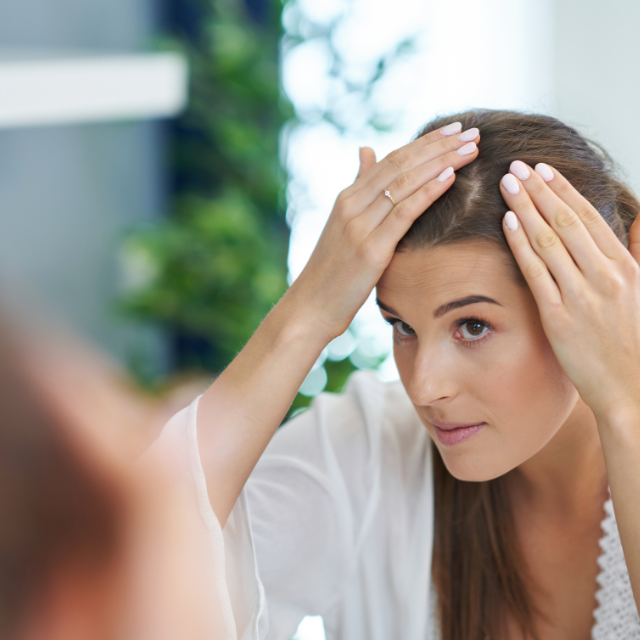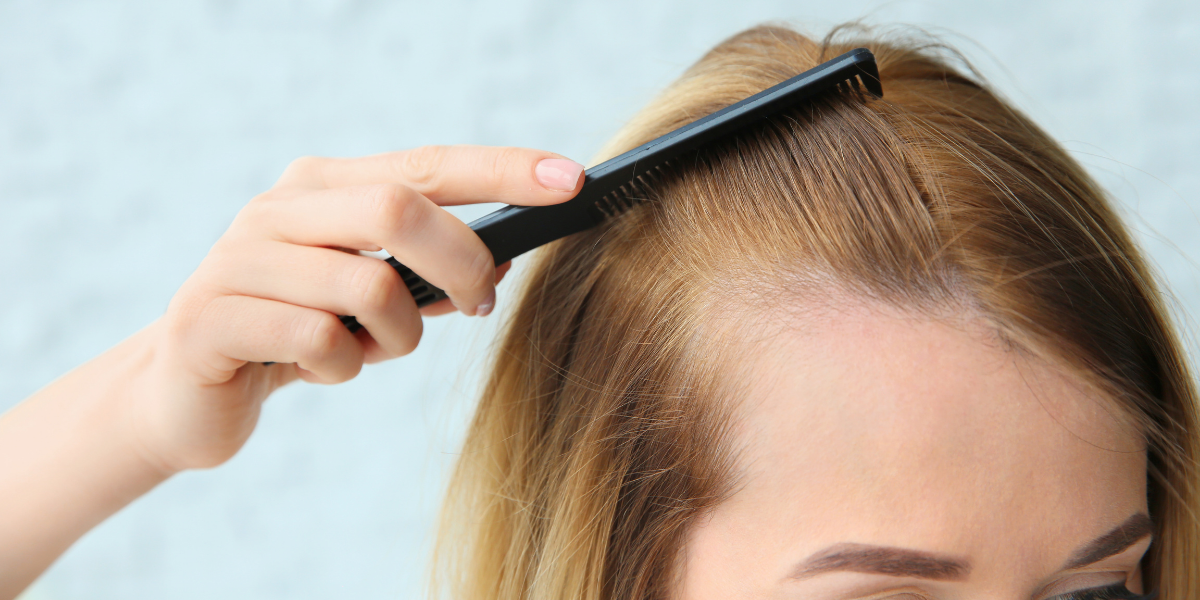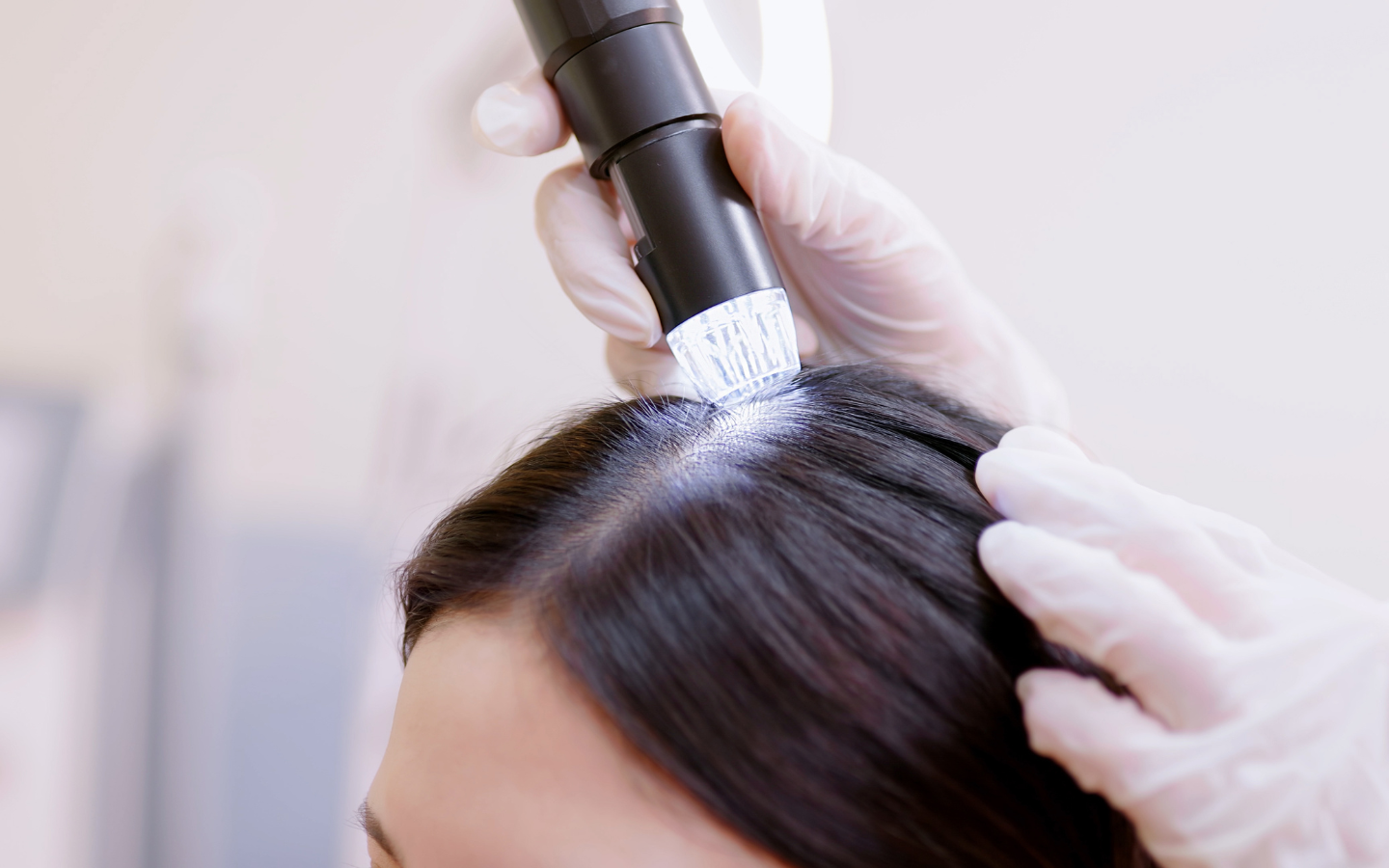Your Guide to
Hair Thinning Treatment


LOOKING DEEPER INTO FEMALE HAIR THINNING
Female Hair Thinning can be a distressing experience, affecting not only your physical appearance but also your self-confidence. While hair thinning is often associated with aging, it can begin at any stage of a woman's life, sometimes even during her twenties or thirties. In this guide, we'll explore the reasons behind Female Hair Thinning, common causes, signs to look out for, and the available treatment options.

Why does female hair thinning start?
Female Hair Thinning, scientifically known as Female Pattern Thinning (FPT) or androgenetic alopecia can be attributed to genetic, hormonal and environmental factors.
While it may be tempting to blame a single cause, the reality is Female Hair Thinning is a result of both genetic predisposition and hormonal fluctuations.
Read below for the key causes why Female Hair Thinning may start.
What causes Female Hair Thinning?
- Genetic Predisposition: Family history plays a crucial role in determining whether a woman is susceptible to hair thinning. If your mother, grandmother, or other female relatives experienced hair thinning, you might be at a higher risk.
- Hormonal Fluctuations: Hormonal changes, such as those during menopause, pregnancy, or conditions like polycystic ovary syndrome (PCOS), can trigger hair thinning by disrupting the hair growth cycle.
- Age: As women age, their hair naturally undergoes changes, becoming finer and thinner over time.
- Stress and Lifestyle Factors: High levels of stress, poor nutrition, crash diets, and extreme weight loss can contribute to hair thinning by affecting the overall health of hair follicles.
- Nutritional Deficiencies: A lack of essential nutrients, particularly iron, Vitamin D, and Biotin, can contribute to hair thinning.
- Medical Conditions: Certain medical conditions and autoimmune diseases can lead to thinning hair.
What are the signs of Female Hair Thinning?
Recognising the signs of Female Hair Thinning early can be pivotal in seeking timely treatment. Keep a look out for the following indicators:
Widening Part: where the scalp becomes more visible as hair density decreases.
Reduced Volume: your hair feels less full and lacks the same volume as before.
Receding Hairline: Your hairline may start to recede from its natural position.
Thinning Ponytail: The circumference of your ponytail becomes noticeably smaller.
Miniaturisation: Thinner, shorter, and more fragile hair strands.

When does Female Hair Thinning start?
- Puberty: Some girls may experience hair thinning during puberty due to hormonal fluctuations.
- Pregnancy: Hormonal changes during pregnancy can lead to hair thinning, but it often reverses after childbirth.
- Menopause: The hormonal shifts during menopause can trigger permanent hair thinning in some women.
- Aging: Hair naturally becomes thinner as we age, with more noticeable thinning occurring later in life.

Treatment Options for Female Hair Thinning
If you're experiencing hair thinning, there are several treatment options available, depending on the underlying cause.
Remember that every woman’s experience with hair thinning is unique, so consulting with a Trichologist is crucial to determine the best course of action for your specific situation.
How to treat female hair thinning
- Hair Follicle Treatment. Our proven treatment for female hair thinning revitalises hair follicles and increases blood flow to the scalp. Using a unique double-action the hair follicle is relaxed allowing hair roots to move and anchor deeper into the scalp. This enables vital minerals to reach the hair roots extending the life cycle of weak hairs.
- Hair Growth Activator. Strengthens hair, stabilises hair thinning, stimulates hair growth. Blocks DHT to allow stronger hair regrowth.
- DHT Blocker. Our DHT Blocker contains the extract of Saw Palmetto, an alternative natural way to decrease DHT in hair roots and assist hair growth.
- Laser Scalp Therapy. Low-level laser therapy (LLLT) stimulate hair follicles and promote hair growth. We use iRestore Professional Laser helmets at our clinics. Available to purchase for home use.
- Nutritional Supplements. Biotin, vitamin D, and other supplements can support overall hair health. Consult with our Trichologists for guidance on the best supplements for you and your hair.
- Lifestyle Changes: Eating a balanced diet and managing stress can help improve hair health.
- Hair Care Practices: Adopting gentle hair care routines, avoiding tight hairstyles, and using sulfate-free products can help minimise further damage to fragile hair.
It’s essential to approach Female Hair Thinning with a holistic perspective, addressing both the underlying causes and available treatment options. By understanding the causes, recognising the signs and exploring suitable treatments, women can take proactive steps toward managing hair thinning and restoring their confidence.
